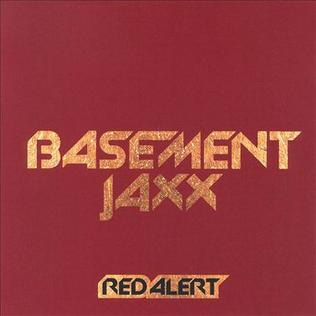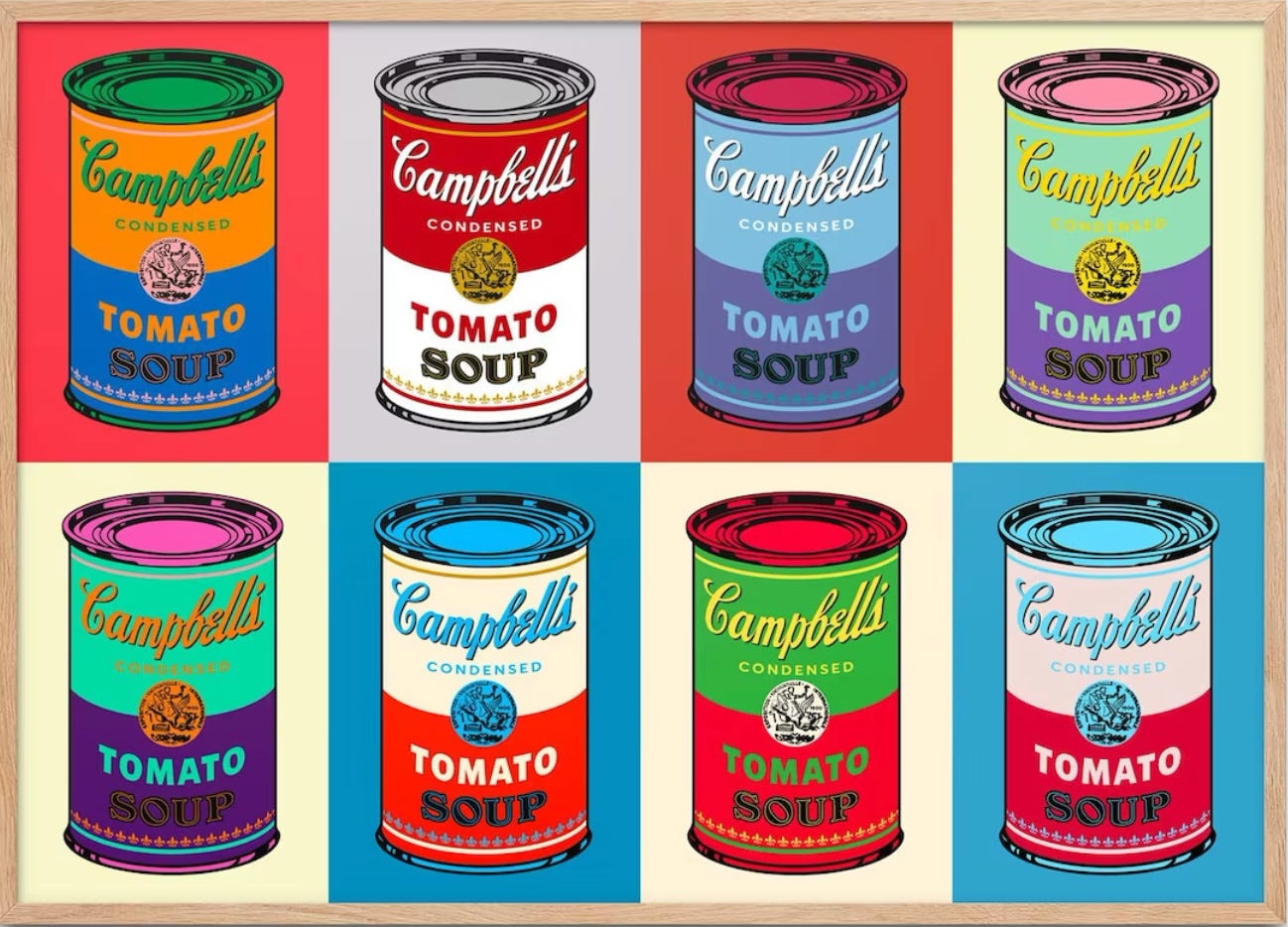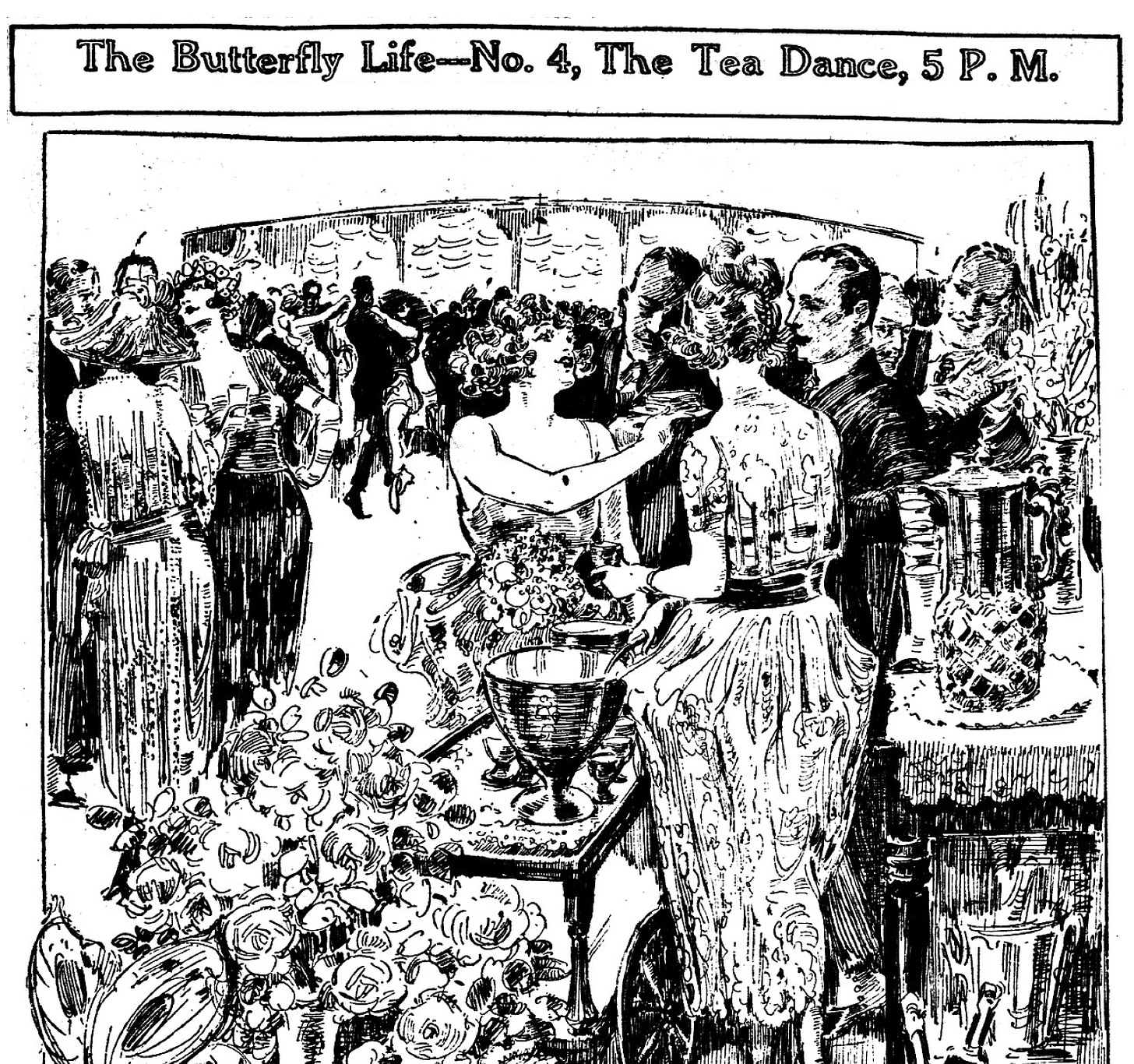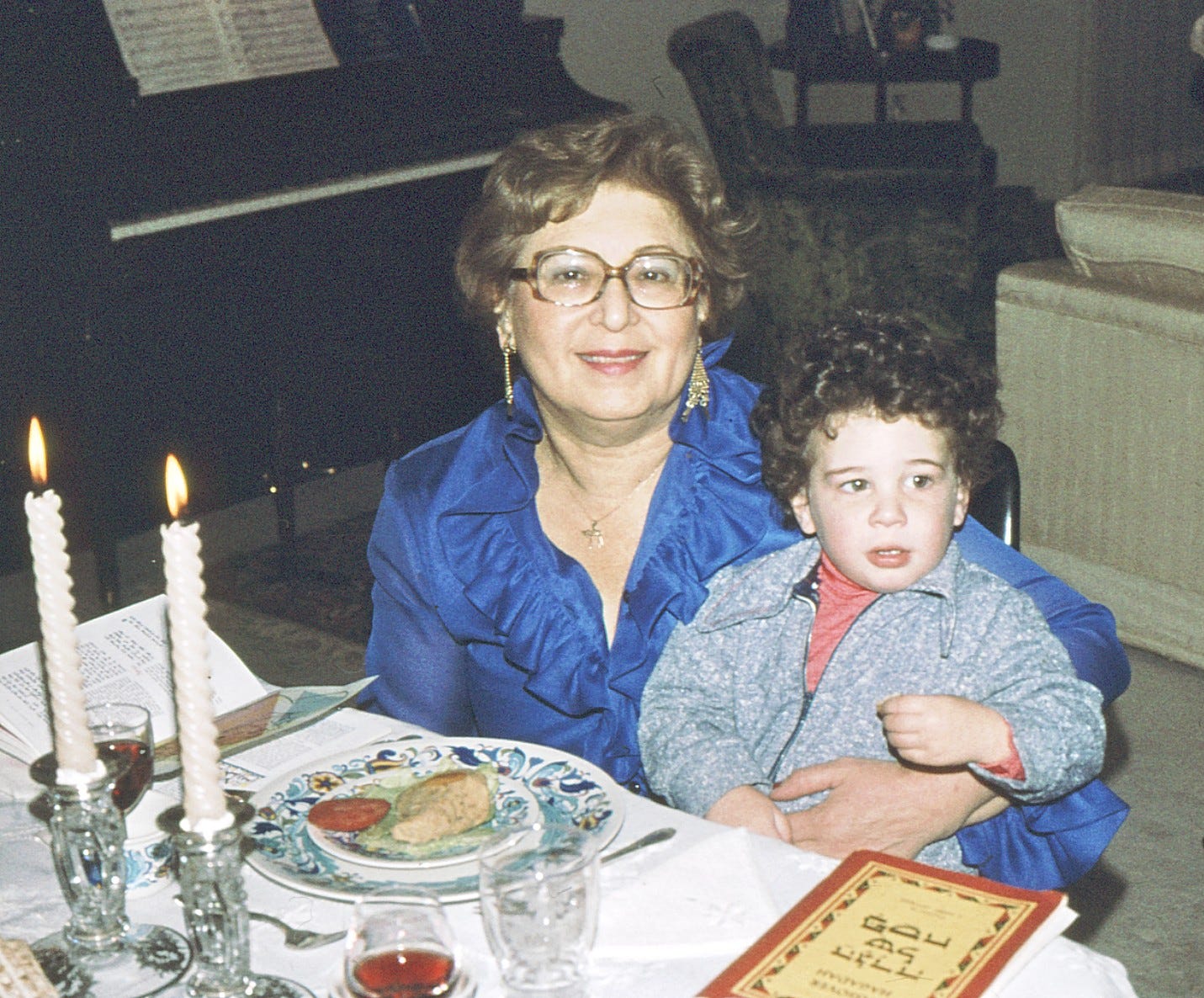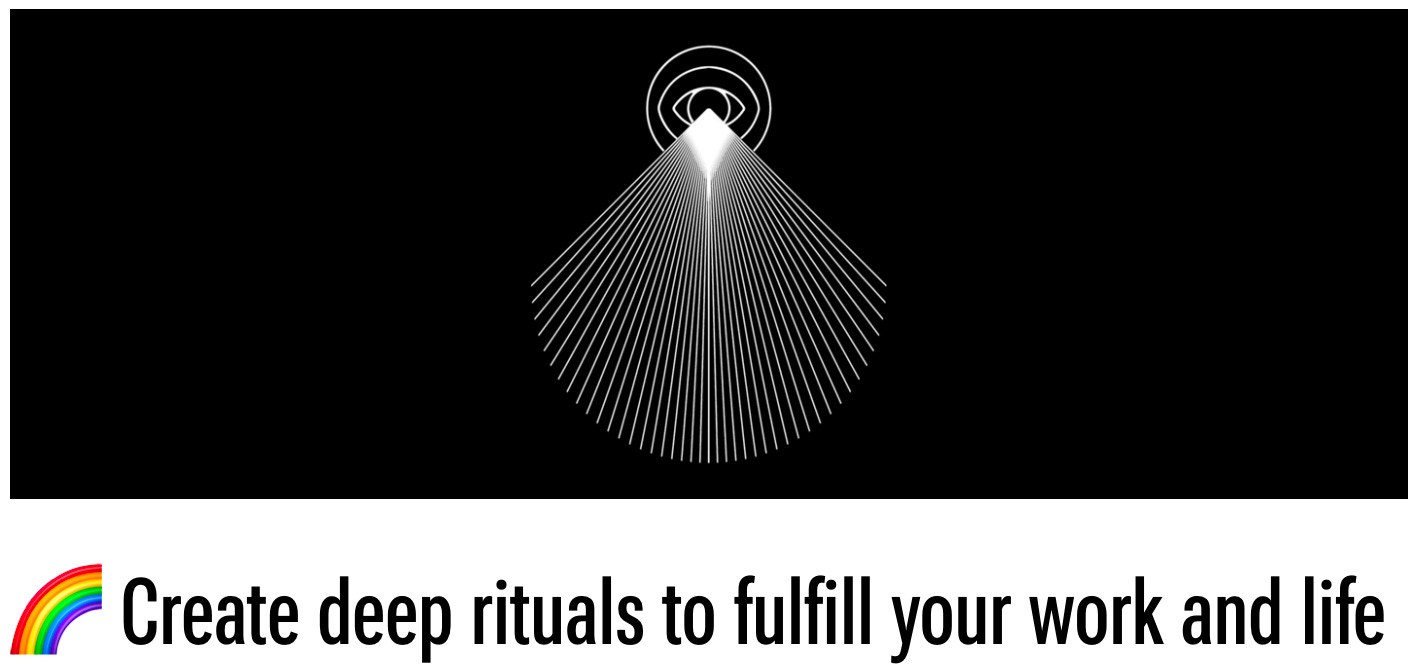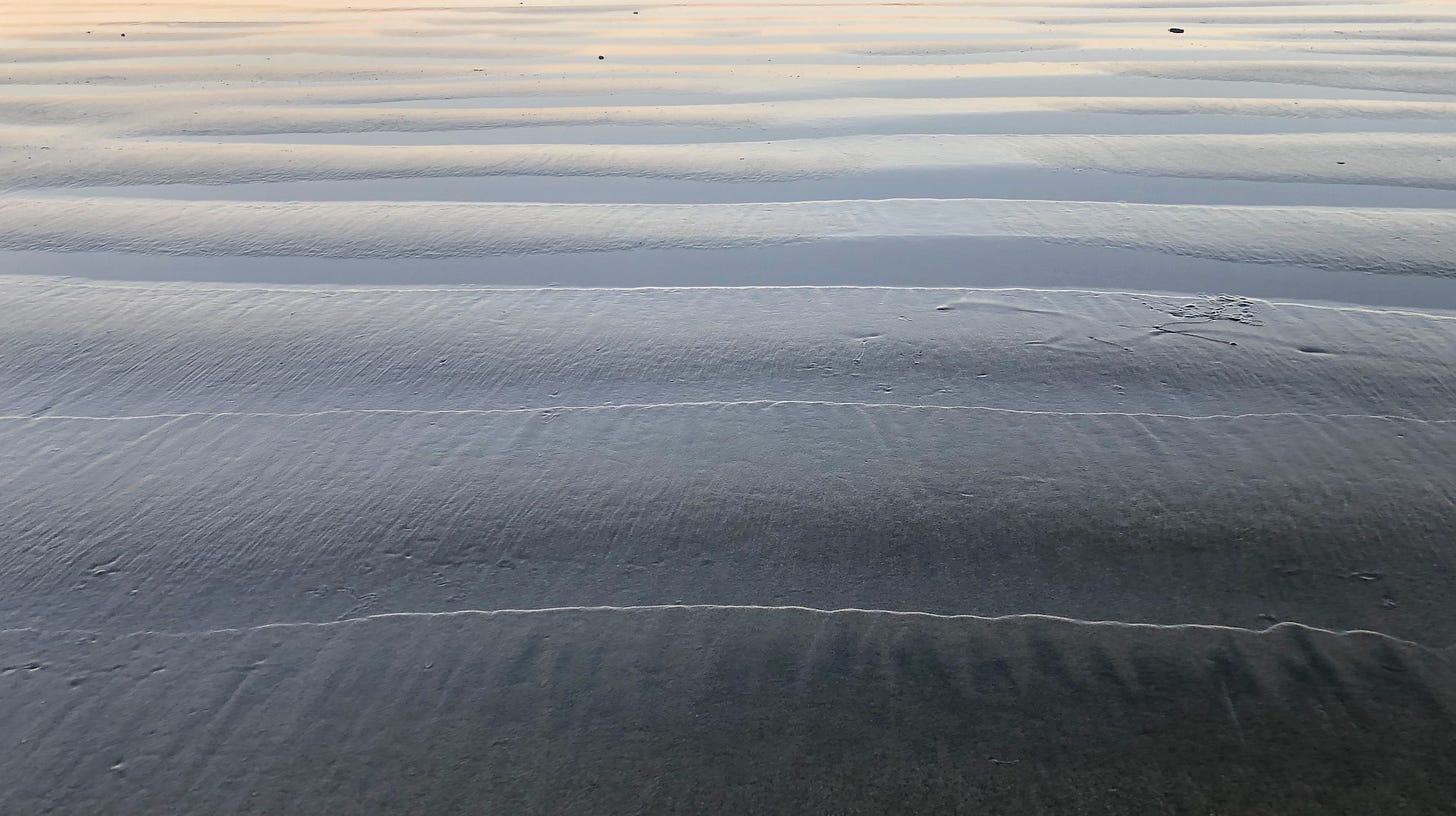In the leap year of 1916, while the British engaged in fierce battles and the Montreal Canadians snagged their first-ever Stanley Cup, my Bubbie was born.
Bubbie, Yiddish for grandmother, embodied the stereotype with her floral prints, frugality, and generous cheek pinches. Bubbie Bessie, as we fondly called her, hailed from a quaint little town in Saskatchewan.
At her wedding to my grandfather Hyman, a unique family twist unfolded: Bessie’s brother Jack met and later married Hyman’s sister, Betty. Wait what? Yes, siblings marrying siblings, a tale that never ceases to amaze.
Bubbie, a homemaker, mother of four, and community leader radiated joy, especially in her kitchen. She was a spectacular woman who oozed chutzpah.
Whenever I’d visit, it was certain she’d be in the kitchen. She was happiest here, displaying her love for all of us through food. Yet, another sanctuary existed in her home, a place of wonder and memories — this was Bubbie’s basement.
The once-frozen fruit cake, now reheated, is ready for our pecking. Bubbie’s voice echoes, “Boys!” We dash upstairs, hoping our little escapade remains a secret.
Rooms with no view
As the 20th century was drawing to a close, Basement Jaxx released their “Red Alert” album. It was then that my brother and I began reminiscing about our antics in Bubbie’s basement, the inspiration behind this newsletter’s title.
Whenever Bubbie was engrossed in her baking, my brother and I would seize the chance to dive into the mysteries of Bubbie’s basement, a labyrinth of four rooms, each with its unique charm:
The first room, dominated by a billiards table (with pool cues missing tips), became our playground for invented games. Old furniture, a mountain of magazines, and Hyman’s legal files surrounded the table. And there were the outdated calendars that Bubbie would renumber and re-date so they could be reused.
The second room was a time capsule. Towering piles of newspapers, some over a decade old, stood beside an eclectic mix of household items. Once she declined my request for an ancient paper, intending to revisit its recipes. I began to learn how she liked holding onto the past.
Room three, a fortress of furniture, showcased Bubbie's organizational prowess. Furniture was stacked in Tetris-like formations, with art and memorabilia filling the gaps.
Room four, our favorite, resembled a post-apocalyptic pantry. Shelves lined with canned goods from bygone eras challenged us to find the oldest relic, with a Campbell’s soup can from 1956 holding the title.
Indeed the whole house was Bubbified. The living room had a plastic-covered couch and closets and drawers overflowing with wrapping paper and empty chocolate boxes ready to wrap gifts.
Bubbie's collecting habits were survival mechanisms. Facing challenges like the Great Depression, World War II, and prairie snowstorms that could isolate for weeks, her drive to save, collect, and repurpose ensured the family's well-being.
While Bubbie developed incredible systems to meet the clutter, I gravitated towards minimalism. Possessions often feel like emotional shackles, and decluttering is my salvation. I get odd gratification from perusing supermarket cleaning aisles and find tidying up videos euphoric.
My friends often joke, referencing the climax of “Good Will Hunting,” that one day they’ll knock, and I’ll have simply vanished. This relentless urge to purge is my reaction against Bubbie’s ways. Yet, it’s merely another shade of neurosis and a reflection of our shared yet contrasting narratives.
A gentle tap on the back-porch window and Bubbie would light up, her rosy cheeks deepening, always feigning surprise for our delight.Elastic energy
Bubbie had an impressive stash of elastic bands. An organizational ninja — they were meticulously arranged by size, each bundle neatly secured with another elastic. To me, these elastics symbolize the resilience and spirit of her life. Just like a rubber band, the more she stretched in giving, the stronger she seemed to become.
Her acts during the war, the tea dances she organized with my grandfather, and her innate ability to connect with people showcased her spirit of community and giving. Bubbie was a middle child, and her early life experiences likely fueled her adaptability.
Her legacy of deep listening, making everyone feel special, and her boundless generosity set a shining example for our entire family.
Bubbie, why did you quietly choose that small corner to enjoy your daytime meals? Did you hesitate to claim a moment just for yourself? Rest assured, you are cherished and can now rest in paradise.Embracing my inner-Bubbie
It’s often said that as we age, we mirror our parents. In my case, I see more of Bubbie in me as I age. I’m blessed to carry forward her vibrant spirit, her childlike wonder, and her insatiable curiosity. My hands, showing signs of wear and stories, resemble hers. And in my living room stands her mid-century modern coffee table, which her great-grandson loves to rest his feet on—a testament to her timelessness.
My writing mimics her penchant for collecting, a therapeutic ritual to find order in chaos. This newsletter has been a grand exercise in decluttering, an attempt to refine and share a cohesive tale. I think Bubbie would find humor in the parallel.
I’d like to think Bubbie and Maya Angelou would’ve bonded over tea. Many recount the warmth they felt in Bessie’s presence. She had this innate ability to make you feel like the center of her universe. I can only hope that I’ve inherited a fraction of that gift.
This isn’t merely a tale of Bubbie’s basement; it’s a testament to timeless lessons of adaptability, cherishing memories, giving back, and finding joy in the little things.
Bubs, I see you. I hear you. I feel your presence. I celebrate your legacy, your love for order, and, of course, those cherished elastics.
Collections from the Web
Even if you think you ‘do’ self-care this episode might make you rethink what that actually even means: Boundaries, Burnout, and the Goopification of Self-Care.
Writing can be lonely so I decided to join two very fun and welcoming communities: Lonely Writers Club and Foster.
While I don’t wholly agree with the premise, this piece is certainly thought-provoking: The Case Against Travel.
If only Huberman would actually tell us what he really believes! How Marijuana affects the brain and body
Resistance — not to coaching but to the act of creating, has been coming in my coaching conversations. So I’ve been pointing them to Steven Pressfield
Thrilled to see Johnny Miller, the creator of the Nervous System Mastery course, gift the world his excellent NSM protocols
I had only heard this poem read by someone else, and then with my own inner voice. But it’s pretty cool to hear David Whyte read Start Close In.
I’ve been diving deep into the nitty-gritty of the creative process - all while implementing very little output. Oh the irony, Here’s one of the finest things I uncovered from Jenny Odell on how to grow an idea:
Why do the best ideas appear uninvited and at the strangest times, darting out at us like an impish squirrel from a shrub?
And of course, it features a dope GIF to help you reframe how you think about thinking — to see it more about participation than production:
Seasons Change
I’m running another CreativeMornings so you can adopt rituals to orientate your life around your work. Whether it’s daily sunrises, doubling down on your writing practice, or date nights with your partner—past participants have turned their informal rhythms into rituals that stick. Click below and I’ll sign you up ⚡️
Chemistry Calls
Chemistry what? It’s coach-speak for an informal, open-minded conversation to explore coaching and compatibility.
After six years of sporting the coaching hat, a trend has emerged: creatives who are setting up, coaches who are stepping up, and entrepreneurs who are opening up have all shared how they have benefited from working with me.
If you’re ready to move into your next chapter, I’d love to support you in conceiving and writing it. If it feels right, let’s see what we might do together.
If you’re looking to relax, stretch, rearrange your books, or chop some broccoli—this is a soothing background for your listening pleasure:
Maturity means requiring the seriousness one had as a child at play
—Nietzsche






